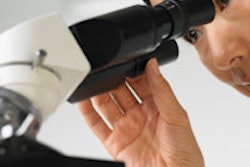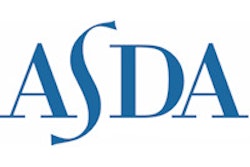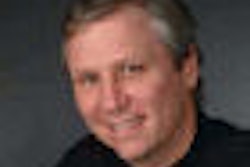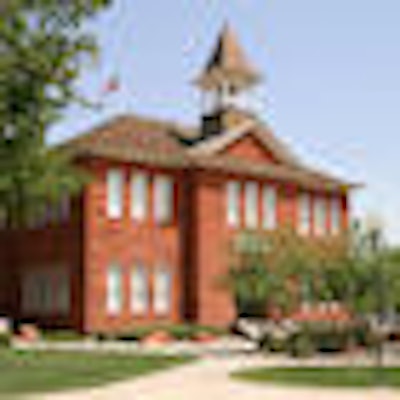
The University of California, Los Angeles (UCLA) School of Dentistry is doing its part to ensure the dental profession remains within reach for students from underprivileged backgrounds.
The school offers three programs designed to help high school students, college students, and graduates obtain skills and experience in dental research, understand the issues facing the profession, and guide them down the path to becoming practicing dentists.
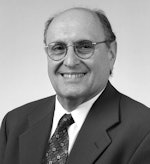 Marvin Marcus, DDS, MPH, UCLA School of Dentistry
Marvin Marcus, DDS, MPH, UCLA School of Dentistry
"If you take someone from a poor community and make a professional out of them, they not only influence their immediate family but have a tremendous influence on their community as well," said Marvin Marcus, DDS, MPH, distinguished emeritus professor at the UCLA School of Dentistry, in an interview with DrBicuspid.com. "They can become leaders in that community."
Dr. Marcus currently oversees this effort but will hand it over to another UCLA professor, Ed Hewlett, DDS, next year.
The first piece is the Pipeline Program for Dentist-Scientists. Now entering its sixth year, the program serves African-American and Latino high school students from the Los Angeles area who have an interest in science and research. Two local community organizations assist UCLA in finding young students to participate: College Bound of Greater Los Angeles, a program that helps African-American youth be competitive in college, and Project Grad Los Angeles, a Ford Foundation-funded project that helps underprivileged kids from the Northeast San Fernando Valley.
Hands-on training
During the first year of the two-year Pipeline Program for Dentist-Scientists, the 20 or so participating students spend one Saturday a month in a class on the UCLA campus learning the techniques of molecular biology. For many, it is the first time they have had the opportunity to do real lab work. After each two-hour session, they also receive a lecture from a dental scientist to learn about the research being conducted at UCLA laboratories.
"At the end of the first year, they receive a lab coat and are assigned or are selected for one of the labs," Dr. Marcus explained. "Most of the time they partner with another kid and spend six weeks on campus conducting research."
The work is rigorous. The students typically work on a particular piece of a graduate student's project for eight hours a day, five days a week while being mentored by the grad student. Then on Fridays they meet with the program's leaders to go over what the students learned.
"The labs have been very enthusiastic about taking them on because they've previously been trained in techniques," Dr. Marcus said.
It's not all about lab work, however. During their evenings in the dorms, students also participate in social nights, self-esteem building programs, and sessions about how to get into college.
At the end of the six-week period, the students give a PowerPoint presentation about the work they've done to families, faculty, and other students.
Competing for prizes
The second year of the program features the Saturday Academy. These sessions are run by Dr. Marcus and Carl Maida, PhD, the program's co-director. In this phase, faculty members work with the students to develop their research to the point where it can be presented at the American Association for the Advancement of Science, Pacific Division regional meeting each June. At the meeting, they compete for prizes while discussing and presenting their work.
“The effects can be bigger than one person getting into dental school.”
— Marvin Marcus, DDS, MPH, UCLA
School of Dentistry
"It was extraordinary last year because three of our posters won prizes and one of them won the best poster of all those presented at this particular meeting," Dr. Marcus said. "And this is in a competitive environment."
The program has proved successful at putting its participating students on the path to college.
"On the whole, we've compared them with their contemporaries and we've found that they tend to get into better research universities than their cohorts that graduate at the same time," Dr. Marcus noted. "We have one graduate at Columbia, another at the University of Wisconsin, a number at UCLA, and one accepted to Harvard and Yale."
The next step
The second part of the Pipeline program, the Summer Medical and Dental Education Program (SMDEP), is designed for students already in college. Funded by the Robert Wood Johnson Foundation, the program is in its eighth year. Each year, 80 students in their first or second year of college arrive at UCLA to build study skills and an understanding of the disparities in healthcare.
"They also work on a project where they look at an area and try to develop a program that will improve health, including oral health," Dr. Marcus said. "It's pretty intensive."
Many of the students are minorities, although not exclusively so, he noted. Of the 80 students who participate in SMDEP each year, 20 or so are accepted into dental schools, while others may go into nursing or other fields, he added.
The Pipeline program also offers a postbaccalaureate program that is funded by the California Endowment and the Robert Wood Johnson Foundation. Launched in 2002, the yearlong program recruits five to six graduates who may have applied to dental school but were not accepted or felt that they were not ready for dental school.
"Often, these students are disadvantaged kids who don't have the help other kids get in terms of understanding what's involved with applying to professional schools," Dr. Marcus explained. "Their folks may not have gone to college, or they don't have the resources to get consultants and whatnot."
The students improve upon their scientific background through UCLA extension courses and are then provided a three-quarter course at the dental school in community-based research, taught by Dr. Marcus.
"During this year they look at existing databases, try to develop new ideas about analyzing these data, and explore what the issues are for disparities in care," he said. "What's been interesting about this is they think of things that I never would have thought of because they're closer to some of the issues than I am."
More than 70% of students who complete this program ultimately get into dental school, he noted.
Ensuring diversity
Dr. Marcus is concerned that key participants in the dental community may be left out in the future without the opportunities these programs provide.
"Dentistry for me was an opportunity for advancement," he said. "My father was a milkman; my parents were not educated."
But the rising cost of dental school tuition has made it more difficult for lower-income families to enter the profession.
"The health professions are a place where people have traditionally worked to advance themselves, and without programs like this maybe we won't see it that much," Dr. Marcus said.
The value of the UCLA programs lies in the professionals they have produced, he added.
"One of our students went on to become the head of the local Hispanic dental association, while another went to Columbia to become the head of the Student National Dental Association," Dr. Marcus said. "The effects can be bigger than one person getting into dental school."




